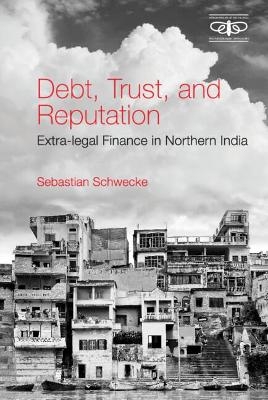
Debt, Trust, and Reputation
Extra-legal Finance in Northern India
Seiten
2022
Cambridge University Press (Verlag)
978-1-316-51726-0 (ISBN)
Cambridge University Press (Verlag)
978-1-316-51726-0 (ISBN)
Studying the operation of credit/debt beyond the reach of state regulation, the book explores the dynamics of trust and reputation that make extra-legal markets work, their production as part of partially failing modernizing projects, and the social responses to them – as well as their impacts on everyday life in India.
Starting in the late nineteenth century, colonial rule in India took an active interest in regulating financial markets beyond the bridgeheads of European capital in intercontinental trade. Regulatory efforts were part of a modernizing project seeking to produce alignments between British and Indian business procedures, and to create the financial basis for incipient industrialization in India. For vast sections of Indian society, however, they pushed credit/debt relations into the realm of extra-legality, while the new, regulated agents of finance remained incapable (and unwilling) of serving their needs. Combining historical and ethnographic approaches, the book questions underlying assumptions of modernization in finance that continue to prevail in postcolonial India, and delineates the socioeconomic responses they produced, and studies the reputational economies of debt that have emerged instead – extra-legal markets embedded into communication flows on trust and reputation that have turned out to be significantly more exploitative than their colonial predecessors.
Starting in the late nineteenth century, colonial rule in India took an active interest in regulating financial markets beyond the bridgeheads of European capital in intercontinental trade. Regulatory efforts were part of a modernizing project seeking to produce alignments between British and Indian business procedures, and to create the financial basis for incipient industrialization in India. For vast sections of Indian society, however, they pushed credit/debt relations into the realm of extra-legality, while the new, regulated agents of finance remained incapable (and unwilling) of serving their needs. Combining historical and ethnographic approaches, the book questions underlying assumptions of modernization in finance that continue to prevail in postcolonial India, and delineates the socioeconomic responses they produced, and studies the reputational economies of debt that have emerged instead – extra-legal markets embedded into communication flows on trust and reputation that have turned out to be significantly more exploitative than their colonial predecessors.
Sebastian Schwecke writes on South Asian history, economy and society, combining a broad spectrum of disciplines. His recent works include the co-edited Rethinking Markets in Modern India: Embedded Exchange and Contested Jurisdiction (Cambridge University Press, 2020). He is founding director of the Max Weber Forum for South Asian Studies, Delhi.
List of tables; List of figures; Glossary; Acknowledgments; Abbreviations; Part I. A Tangled Jungle of Disorderly Transactions: 1. Introduction; 2. Contract; 3. Discretion; 4. Containment; Part II. Debt in Banaras: 5. Trust; 6. Obligation; 7. Disappearance; 8. Reputation; 9. Conclusion; List of references; Index.
| Erscheinungsdatum | 10.03.2022 |
|---|---|
| Reihe/Serie | Metamorphoses of the Political: Multidisciplinary Approaches |
| Zusatzinfo | Worked examples or Exercises |
| Verlagsort | Cambridge |
| Sprache | englisch |
| Maße | 158 x 236 mm |
| Gewicht | 640 g |
| Themenwelt | Geschichte ► Teilgebiete der Geschichte ► Wirtschaftsgeschichte |
| ISBN-10 | 1-316-51726-8 / 1316517268 |
| ISBN-13 | 978-1-316-51726-0 / 9781316517260 |
| Zustand | Neuware |
| Informationen gemäß Produktsicherheitsverordnung (GPSR) | |
| Haben Sie eine Frage zum Produkt? |
Mehr entdecken
aus dem Bereich
aus dem Bereich
Macht und Herrschaft im Zarenreich
Buch | Hardcover (2024)
C.H.Beck (Verlag)
CHF 69,85
wie die USA und China um die technologische Vorherrschaft auf der …
Buch | Hardcover (2023)
Rowohlt (Verlag)
CHF 41,95


